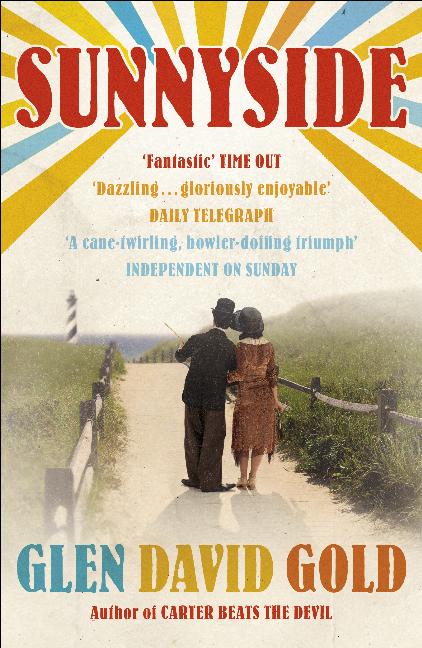David Hume was born 300 years ago today. His influence on philosophy is well recognized. His influence on the social sciences, rather less so. Dan Sperber proposes that readers of his blog celebrate this anniversary by selecting particularly relevant quotes. Sounds like a good idea – let me start the ball rolling by stealing a particularly appropriate one from Cosma Shalizi.
NOTHING appears more surprizing to those, who consider human affairs with a philosophical eye, than the easiness with which the many are governed by the few; and the implicit submission, with which men resign their own sentiments and passions to those of their rulers. When we enquire by what means this wonder is effected, we shall find, that, as FORCE is always on the side of the governed, the governors have nothing to support them but opinion. It is therefore, on opinion only that government is founded; and this maxim extends to the most despotic and most military governments, as well as to the most free and most popular. The soldan of EGYPT, or the emperor of ROME, might drive his harmless subjects, like brute beasts, against their sentiments and inclination: But he must, at least, have led his mamalukes, or prætorian bands, like men, by their opinion.
Opinion is of two kinds, to wit, opinion of INTEREST, and opinion of RIGHT. By opinion of interest, I chiefly understand the sense of the general advantage which is reaped from government; together with the persuasion, that the particular government, which is established, is equally advantageous with any other that could easily be settled. When this opinion prevails among the generality of a state, or among those who have the force in their hands, it gives great security to any government.
Right is of two kinds, right to POWER and right to PROPERTY. What prevalence opinion of the first kind has over mankind, may easily be understood, by observing the attachment which all nations have to their ancient government, and even to those names, which have had the sanction of antiquity. Antiquity always begets the opinion of right; and whatever disadvantageous sentiments we may entertain of mankind, they are always found to be prodigal both of blood and treasure in the maintenance of public justice. There is, indeed, no particular, in which, at first sight, there may appear a greater contradiction in the frame of the human mind than the present. When men act in a faction, they are apt, without shame or remorse, to neglect all the ties of honour and morality, in order to serve their party; and yet, when a faction is formed upon a point of right or principle, there is no occasion, where men discover a greater obstinacy, and a more determined sense of justice and equity. The same social disposition of mankind is the cause of these contradictory appearances.
It is sufficiently understood, that the opinion of right to property is of moment in all matters of government. A noted author has made property the foundation of all government; and most of our political writers seem inclined to follow him in that particular. This is carrying the matter too far; but still it must be owned, that the opinion of right to property has a great influence in this subject.
Upon these three opinions, therefore, of public interest, of right to power, and of right to property, are all governments founded, and all authority of the few over the many. There are indeed other principles, which add force to these, and determine, limit, or alter their operation; such as self-interest, fear, and affection: But still we may assert, that these other principles can have no influence alone, but suppose the antecedent influence of those opinions above-mentioned. They are, therefore, to be esteemed the secondary, not the original principles of government.
For, first, as to self-interest, by which I mean the expectation of particular rewards, distinct from the general protection which we receive from government, it is evident that the magistrate’s authority must be antecedently established, at least be hoped for, in order to produce this expectation. The prospect of reward may augment his authority with regard to some particular persons; but can never give birth to it, with regard to the public. Men naturally look for the greatest favours from their friends and acquaintance; and therefore, the hopes of any considerable number of the state would never center in any particular set of men, if these men had no other title to magistracy, and had no separate influence over the opinions of mankind. The same observation may be extended to the other two principles of fear and affection. No man would have any reason to fear the fury of a tyrant, if he had no authority over any but from fear; since, as a single man, his bodily force can reach but a small way, and all the farther power he possesses must be founded either on our own opinion, or on the presumed opinion of others. And though affection to wisdom and virtue in a sovereign extends very far, and has great influence; yet he must antecedently be supposed invested with a public character, otherwise the public esteem will serve him in no stead, nor will his virtue have any influence beyond a narrow sphere.
A Government may endure for several ages, though the balance of power, and the balance of property do not coincide. This chiefly happens, where any rank or order of the state has acquired a large share in the property; but from the original constitution of the government, has no share in the power. Under what pretence would any individual of that order assume authority in public affairs? As men are commonly much attached to their ancient government, it is not to be expected, that the public would ever favour such usurpations. But where the original constitution allows any share of power, though small, to an order of men, who possess a large share of the property, it is easy for them gradually to stretch their authority, and bring the balance of power to coincide with that of property.
 A year after I first trailed it, here is the Crooked Timber seminar on Sunnyside,
A year after I first trailed it, here is the Crooked Timber seminar on Sunnyside,